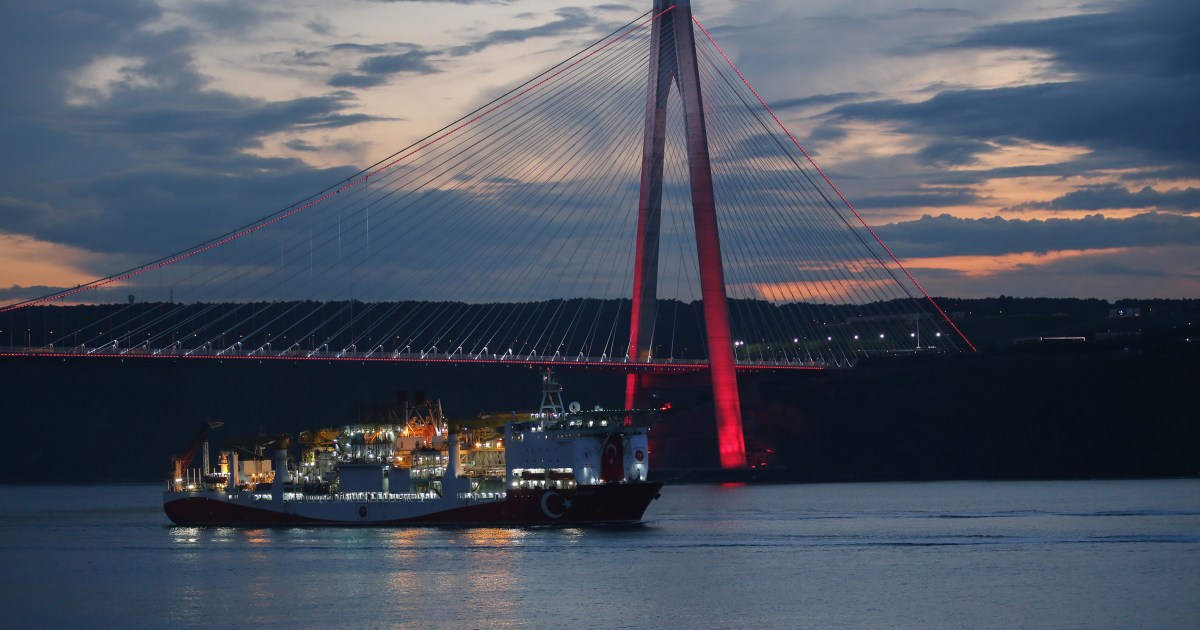He said the American Foreign Policy magazine ( Foreign Policy app ) that Turkey 's plans to become a regional energy giant just got a boost to the discovery of a large natural gas field, and may have been about to overcome Russia.
In an article by author Dmitry Bekev, she pointed out that Turkey has never hidden its ambitions to become a regional energy power, as its position has always been between oil and gas producers in the Middle East, the South Caucasus and the consuming countries of the European Union, which constituted a trump card for it, but the recent discovery of natural gas off Black Sea Beach will be a game changer.
The writer said that "the tuna-1 field, a reference to the Turkish word for the Danube River, discovered off the Black Sea, contains about 320 billion cubic meters of gas, which is equivalent to twice the size of the Aphrodite field in southern Cyprus, which is the subject of property disputes, which is one of the There are several reasons for the current tensions between Ankara and the Greek-led Mediterranean coalition.
Not a small achievement
The writer referred to the pledge of Turkish President Recep Tayyip Erdogan to make the Black Sea gas available for use in 2023, the centenary of the founding of the Turkish Republic, saying if this is done, Turkey will be able to meet approximately 7% of its annual demand for natural gas (about 45 billion cubic meters per year). 2019) from local sources, describing it as not a small achievement for a country that traditionally relies on oil and gas imports, adding that this gas discovery also matches well with the government's campaign to boost local manufacturing to modernize the economy and add the state's status, under the rubric of "local and national."
He went on to say that what was really at stake in all of this was Turkey's trade relations, first and foremost, with Russia. Since the 1990s, the Russian "Gazprom" has been the dominant supplier in the Turkish market, providing half of the gas for domestic consumption. In fact, since 2005, when the "Blue Stream pipeline" between Russia and Turkey began to operate, the latter has turned into the second most important natural gas customer for Moscow after Germany.
The upper hand
Moscow had the upper hand in trade negotiations with Ankara, whether through setting a favorable pricing formula for Russia or the so-called receiving or payment clauses in long-term contracts, which forced Turkey to buy part of the gas on an annual basis. And it was not even able to take advantage of the dispute between Russia and the European Union following the annexation of the Crimean peninsula and the subsequent cancellation of the "South Stream pipeline", which would have transported Russian gas to Europe via other countries as well.
And access to the sources of gas in the Black Sea will strengthen the negotiating position of Turkey. Long-term contracts with "Gazprom" are renewable at the end of 2021. Turkish negotiators will press hard on the issue of receiving or paying. Also on the table will be debts of their country amounting to two billion dollars to "Gazprom" in fines from Turkish importers who failed to meet their annual quotas. The presence of alternative suppliers and the ability to benefit from their hydrocarbons, even if they are still trapped at the bottom of the Black Sea, will be Ankara's first bargaining chip.
Turkey's neighbors will be watching closely how things go in the upcoming negotiations. On August 24, Bulgaria and Greece finalized an agreement to establish a joint LNG terminal outside the Greek port city of Alexandroupolis, near the Greek-Turkish border. They will also try to use their new alternative supplies to obtain concessions from Russia.

